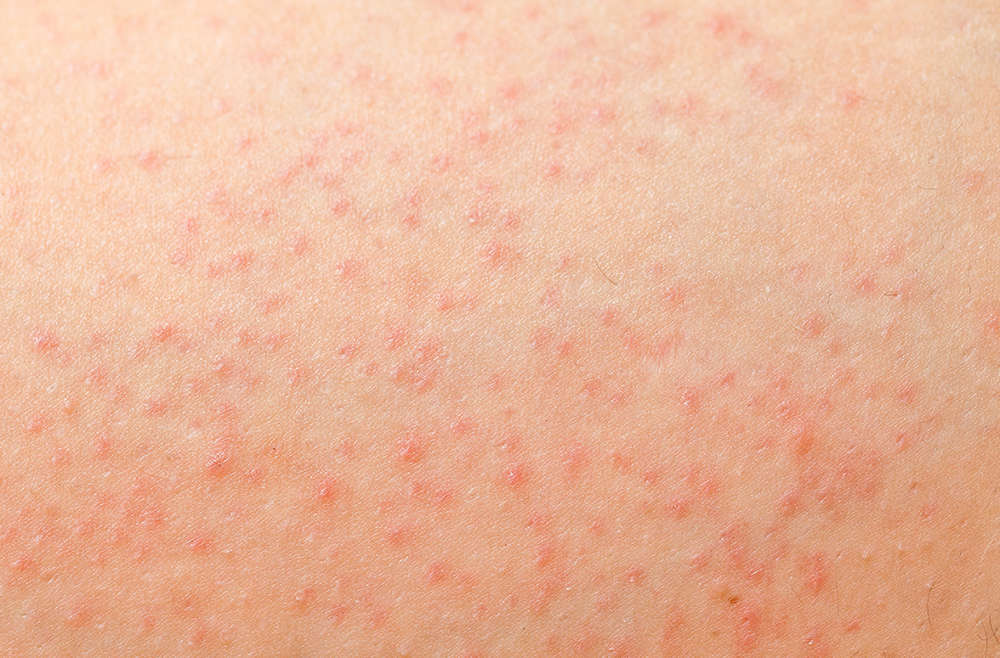Folliculitis
Folliculitis is a common skin condition in which an infection causes inflammation of the hair follicles. The infection causes a rash that generally appears as small bumps that are red, white, or yellow in color. Folliculitis can occur anywhere on the skin where hair grows, but it is most common on the thighs, buttocks, neck, and axillae (underarms), since these areas experience the most friction. There are a number of skin conditions that can cause inflammation of the hair follicle, thus it is important to have one of our trusted, board-certified dermatologists at Skin and Laser Dermatology Center diagnose and develop the best treatment plan for you.
Folliculitis is treatable through a variety of medication including antifungal, antibiotic, and steroid treatments. In some cases, laser hair removal can be necessary. To help prevent deep infections and receive immediate relief, schedule an appointment today at Skin and Laser Dermatology Center.
What causes folliculitis?
Folliculitis is usually caused by an infection of the hair follicle, a small cavity that surrounds the root of a hair. The infection can be viral, bacterial, or fungal. Folliculitis can also occur due to irritation of the hair follicle from trauma and occlusion (blockage) from skin-clogging substances.
Who can develop folliculitis?
Folliculitis affects people of all ages, including healthy individuals.
What are the symptoms of folliculitis?
- Itchy skin
- Small crusty bumps
- Reddened skin resembling a rash
- Irritation
- Fluid filled sores
- Tenderness
What are the risk factors for developing folliculitis?
Wearing tight clothing that irritates the skin, excessive sweating, a weakened immune system, and obesity can increase the chances of developing folliculitis. Tight hair braids and ingrown hairs are likewise linked to folliculitis. To reduce the risk of exposure to the causes of folliculitis, avoid improper shaving techniques, blunt or unclean shaving tools, and spending too long in sweaty clothing.
Is folliculitis contagious?
Most folliculitis is not contagious; however, folliculitis caused by infectious agents can be transmitted by person-to-person skin contact, shared razors, and improperly maintained hot tubs.
Do I need treatment for folliculitis?
Although folliculitis is not life-threatening, and can clear on its own without treatment, if symptoms cause embarrassment, discomfort, or symptoms persists, it is important to be seen by a board certified dermatologist who can help you effectively manage the condition.
Frequently Asked Questions
Our Providers
Dedicated Team
Skin & Laser Dermatology Center treats patients for all skin care concerns, including skin cancer surgery, cosmetic dermatology, sclerotherapy, laser peels, laser hair removal, hyperhidrosis, rosacea, and acne treatments.







